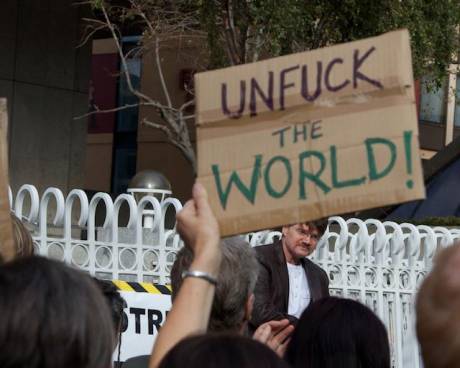But doesn't that mean that (say) unemployed people wouldn't get anything? Seems to be different from how it was described in the things that I read although maybe that was due to an inpreciseness in the language rather than because how it was was actually different. What makes you say that you think it was just a tax credit? I'd like to know for definite I guess.
See e.g.
here, "Guide to the 2009 Australian Government Stimulus Package Handouts":
How much stimulus money will you get?
It depends on what your total income from all sources was last year. The payment will be:
$900 if your taxable income is up to and including $80,000
$600 if your taxable income is between $80,001 and $90,000, and
$250 if your taxable income is between $90,001 and $100,000.
There are some exclusions, however:
You must have paid at least some tax in the year 2007-2008 to qualify. If you earned less than the tax free threshold of $6,000 last year you will not receive a payment.
If you earned more than $100,000 last year you won't receive a benefit payment.
You must be over 18 to qualify.
The govt is not constrained in the same way that the central bank is though. If it wanted to tax or borrow money and then transfer it to unemployed people, it could certainly do this. Does do this, in fact.
I don't really get this, we basically have fiat money so it doesn't have to be backed by anything does it? What am I misunderstanding?
All money is backed by something. So in that sense, fiat money doesn't actually exist.
You can think of money as coming in two flavours. The first flavour is central bank money (known as narrow money, base money, high power money, outside money, etc). The second flavour is bank money (broad money, inside money, etc).
Regardless of the type, money is always a liability of the issuer and an asset of the holder. It is a fundamental principle of financial accounting that liabilities cannot exceed assets. When the central bank issues money as part of its normal everyday operations, it acquires assets in the form of govt securities like gilts.
So the central bank adds money by purchasing bonds, expanding its balance sheet, and withdraws money by selling bonds, contracting its balance sheet.
When a private banks issues money—a deposit—it acquires an asset—a loan—so that it too follows the same rule.
The cash in your wallet is ultimately backed by the assets on the Bank of England's balance sheet, just like the deposits you hold at your bank are backed by the assets on its balance sheet.
Also not all central banks are government owned (eg the Federal Reserve).
Well, the Fed is pretty unique, and its ownership structure is quite complicated. It has private and public components. Still, any losses on the Fed's balance sheet (e.g. on the the Maiden Lane portfolio) will have to be born by the Treasury.
OK, that's probably the answer I'm asking for - what are the effects likely to be? Also, what is it that prevents it from doing that now? Is it a law or what? What was the rationale for that law?
People think that this will be very inflationary, which is why modern central banks are independent of the govt and prevented by law from buying debt directly from it.
One issue that worries central bankers in particular is inflation expectations. If the public lose faith in the central bank as an independent entity then it might lose faith in the currency as an asset of value.
On the other hand there are those who think that a burst of high inflation would pull the economy out of a deflationary hole and there are even those who think who think that govt can fund its spending via money creation without causing inflation.
Sorry, lots of questions...
It's alright. This stuff is a bit convoluted.
As an aside - from the Guardian and having some bearing on what you were saying earlier about what the BofE is in the business of doing.
What they are saying is that the Bank of England should act like a private bank. Make loans, etc. The Bank is still capitalised and losses are born by the taxpayer (not that unlike, ahem, some "private" banks we have...). What isn't clear is what advantages the Bank of England would have over existing banks, and what benefit this new system would get you.


